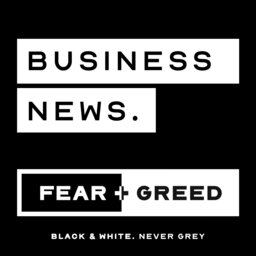Why this 135 year old company is now a disruptor
James Hardie may be known to many for its history involving asbestos products - but it has become a very modern global operator in building supplies.
Gaurav Sodhi, Deputy Head of Research at Intelligent Investor, explains to Sean why he sees James Hardie as a disruptor in the US building industry.
This is Fear & Greed's summer investing series. All information is general in nature - you should seek independent professional advice before making investment decisions.
In 1 playlist(s)
FEAR & GREED | Business News
Daily business news for people who make their own decisions, with business journalist Sean Aylmer an…Social links
Follow podcast
Recent clips

A guide to luxury holidays in 2026
06:49

Gen X’s 'dirty fantasy': the four-day work week
06:12

Dividend investing: How to pick quality income stocks
06:07
 FEAR & GREED | Business News
FEAR & GREED | Business News